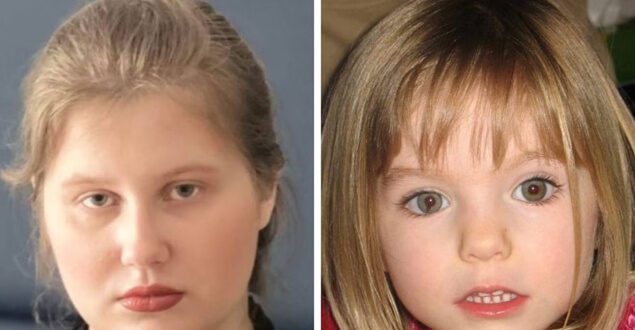Facial recognition analysis casts doubt on Polish woman’s claim to be Madeleine McCann
Julia Wendell, a Polish woman who believes she may be the missing British girl Madeleine McCann, is awaiting DNA test results to confirm her identity. However, Swiss facial recognition firm Ava-X has stated that their “face matching” software has found it highly unlikely that Wendell is McCann.
Ava-X boss Christian Fehrlin told Swiss news outlet Blick that their technology, which was developed to assist law enforcement in reuniting missing families, did not find a match. “It’s practically impossible for the young Pole to be Maddie,” he said, stating he was 90% sure based on the findings. However, a comparison between a photo of Wendell as a child and as an adult did provide a match.
Wendell’s health concerns
Wendell’s spokesperson Dr Fia Johansson recently revealed that the young woman is awaiting test results over fears of leukaemia. Johansson stated that the focus was now on Wendell as a person, not Madeleine, and noted that she had experienced an abusive childhood leading to poor health, bad asthma, and bone pain. The results of the forensic examinations and a genetic test, which will establish her ancestry and be compared to McCann’s, are still pending.
Challenges to Wendell’s claims
Previous challenges to Wendell’s claims include the statement of Pawel Noga from the Provincial Police Headquarters in Wroclaw that authorities have “ruled out” Wendell’s version of events to be “true”. Internet users have also speculated that Wendell could be Swiss girl Livia Schepp, who disappeared in 2011 with her twin Alessia, aged 6.
Wendell’s quest for truth
Despite these setbacks, Wendell and Johansson remain determined to pursue answers about Wendell’s past, including the possibility that she may be another missing child. Internet rumours regarding Wendell’s identity have also fuelled this drive for truth. “Julia just wants to know the truth about who she is,” Johansson stated.
 Mind Uncharted Explore. Discover. Learn.
Mind Uncharted Explore. Discover. Learn.



